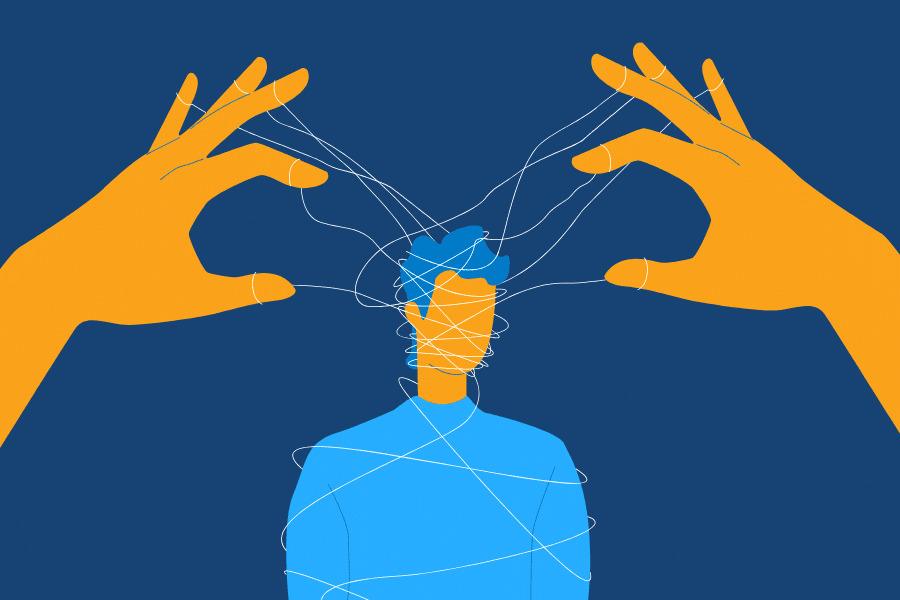Gaslighting by Parents

Gaslighting is a form of psychological manipulation in which a person or group subtly sows seeds of doubt in another individual, making them question their perception of reality. When this manipulation occurs within the context of parenting, it becomes particularly harmful, as it can distort a child’s cognitive and emotional development. The term “gaslighting by parents” refers to situations where parents, either consciously or unconsciously, engage in this manipulative behavior towards their children. This article explores gaslighting by parents from a psychological and cognitive perspective, delving into the short- and long-term impacts on children’s mental health and development.
What is Gaslighting?

Gaslighting as a concept originated from the 1938 play “Gas Light,” where a husband manipulates his wife into doubting her sanity by dimming the gas lights in their home and then denying that the lights changed. Over time, the term has come to represent a broader range of manipulative behaviors, particularly within close relationships.
Gaslighting typically involves tactics such as denial, misdirection, contradiction, and misinformation. The goal is to destabilize the victim’s belief in their reality, making them more dependent on the gaslighter. When this form of manipulation comes from parents, it carries unique and profound consequences for the child’s cognitive and emotional development.
The Psychological Mechanisms Behind Gaslighting by Parents
Gaslighting by parents taps into several psychological mechanisms that can profoundly impact a child’s well-being. One key mechanism is projection, where a parent may project their own insecurities, flaws, or unresolved trauma onto their child. For example, a parent who struggles with feelings of inadequacy may accuse their child of being incompetent, constantly criticizing or doubting their capabilities.
Another mechanism at play is denial. Parents who engage in gaslighting may refuse to acknowledge or validate their child’s feelings, experiences, or memories. By denying the child’s lived reality, the parent creates confusion and self-doubt. This undermines the child’s trust in their perceptions, leading to a fragile sense of self.
A third mechanism is blame-shifting. In this dynamic, parents refuse to take responsibility for their actions, instead blaming the child for the negative outcomes. For example, if a parent yells at a child in anger, they might later tell the child that it was their fault for being disobedient or difficult. Over time, the child internalizes this blame, believing that they are inherently flawed or responsible for the parent’s negative behavior.
Cognitive Impacts of Gaslighting by Parents
Gaslighting by parents doesn’t just affect a child’s emotions; it also distorts their cognitive processes. Cognitive development involves the construction of thought processes, including memory, problem-solving, and decision-making. When gaslighting is introduced, these processes can become distorted in several ways.
- Memory Distortion: Children subjected to gaslighting often experience confusion about their memories. This occurs because gaslighting undermines the child’s ability to trust their recollections. A parent may tell a child that an event didn’t happen the way they remember, or that it didn’t happen at all. Over time, the child begins to doubt their memory, leading to fragmented or distorted recollections of their experiences. This can have a long-term impact on their ability to recall events accurately and can contribute to anxiety around their perceptions of reality.
- Reduced Critical Thinking: Gaslighting by parents discourages independent thinking and problem-solving. When a child is repeatedly told that their perception of reality is wrong, they may begin to defer to the parent’s interpretation of events rather than trusting their own judgment. This can stifle the development of critical thinking skills, as the child learns to rely on external validation rather than internal reasoning. Over time, this can lead to difficulties in making decisions or forming opinions, as the child becomes dependent on others for guidance.
- Cognitive Dissonance: Cognitive dissonance occurs when a person holds two contradictory beliefs or values simultaneously, leading to mental discomfort. In the context of gaslighting by parents, this dissonance can arise when a child’s perception of reality conflicts with the version of reality presented by the parent. The child may struggle to reconcile their own experiences with the parent’s assertions, leading to confusion and distress. To alleviate this discomfort, the child may suppress their own beliefs and adopt the parent’s version of reality, even if it contradicts their internal truth.
Emotional and Behavioral Consequences

The emotional impact of gaslighting by parents is profound, often leading to long-term psychological consequences. Children who are subjected to this form of manipulation may experience a range of emotional responses, including anxiety, depression, and low self-esteem.
- Chronic Self-Doubt: One of the most common emotional outcomes of gaslighting by parents is chronic self-doubt. When a parent consistently undermines a child’s perception of reality, the child begins to question their own judgment. This can lead to feelings of inadequacy and a lack of confidence in their abilities. Even as adults, individuals who have experienced gaslighting by parents may struggle with self-doubt, constantly seeking validation from others and doubting their own decisions.
- Anxiety and Hypervigilance: Gaslighting by parents can create an environment of uncertainty and unpredictability. Children may become hypervigilant, constantly trying to anticipate the parent’s reactions or behaviors to avoid conflict. This can lead to chronic anxiety, as the child feels like they are walking on eggshells, never knowing when they will be accused of misremembering or misinterpreting events. This heightened state of anxiety can persist into adulthood, leading to difficulties in relationships and a constant fear of being manipulated or deceived.
- Identity Confusion: A child’s sense of self is largely shaped by their interactions with their caregivers. When a parent engages in gaslighting, the child’s identity development can become distorted. The child may struggle to form a coherent sense of self, as their perceptions and experiences are constantly called into question. This can lead to identity confusion, where the child has difficulty understanding who they are, what they believe, and what they want in life. As adults, they may find themselves in a perpetual state of self-questioning, unsure of their values, beliefs, or desires.
- Depression and Hopelessness: Over time, the emotional toll of gaslighting by parents can lead to feelings of hopelessness and depression. The constant invalidation and manipulation can create a sense of powerlessness, as the child feels trapped in a cycle of self-doubt and confusion. This can lead to a deep sense of despair, as the child believes that they will never be able to trust themselves or escape the manipulative dynamic. In severe cases, this can contribute to clinical depression and an increased risk of suicidal thoughts or behaviors.
Long-Term Psychological Effects

The effects of gaslighting by parents often extend far beyond childhood, influencing the individual’s mental health and relationships well into adulthood. Adult children of gaslighting parents may find themselves struggling with a range of psychological issues, including difficulties in relationships, low self-esteem, and complex trauma.
- Trust Issues: One of the long-term effects of gaslighting by parents is difficulty trusting others. When a child’s reality is consistently manipulated, they may develop a deep-seated mistrust of others, fearing that their perceptions will be questioned or invalidated. This can make it difficult for them to form close relationships, as they may be constantly on guard, fearing manipulation or betrayal. Trust issues can also extend to themselves, as they struggle to trust their own judgment and perceptions.
- People-Pleasing Behavior: Adult children of gaslighting parents may also develop people-pleasing tendencies, as they have been conditioned to seek external validation and avoid conflict. This can lead to difficulties in setting boundaries, as they may prioritize the needs and desires of others over their own well-being. People-pleasing behavior can result in unhealthy relationships, where the individual feels responsible for maintaining harmony at the expense of their own mental health.
- Complex Trauma: Gaslighting by parents can contribute to complex trauma, also known as complex post-traumatic stress disorder (C-PTSD). Unlike traditional PTSD, which is typically associated with a single traumatic event, C-PTSD arises from prolonged exposure to trauma, often within the context of a close relationship. The emotional abuse inherent in gaslighting can create lasting psychological scars, leading to symptoms such as emotional dysregulation, dissociation, and difficulties in maintaining healthy relationships.
- Low Self-Worth: Individuals who have experienced gaslighting by parents often struggle with low self-worth. The constant invalidation of their experiences and perceptions can lead them to believe that they are inherently flawed or unworthy of love and respect. This can manifest as self-destructive behaviors, such as substance abuse or self-harm, as the individual seeks to numb their emotional pain or punish themselves for perceived inadequacies.
Breaking the Cycle of Gaslighting by Parents

Breaking free from the effects of gaslighting by parents requires a multifaceted approach, including therapy, self-awareness, and boundary-setting. One of the first steps in healing is recognizing the manipulative behavior for what it is. This can be difficult, as gaslighting is often subtle and insidious, but identifying the patterns of manipulation is crucial for reclaiming one’s sense of reality.
Therapy can be a powerful tool in the healing process, particularly forms of therapy that focus on trauma and emotional regulation, such as cognitive-behavioral therapy (CBT) or dialectical behavior therapy (DBT). These therapeutic approaches can help individuals reframe their thoughts, challenge distorted beliefs, and develop healthier coping mechanisms.
Setting boundaries is also essential in breaking the cycle of gaslighting by parents. This may involve limiting contact with the manipulative parent, or in some cases, cutting off the relationship entirely. Establishing boundaries can be difficult, particularly if the individual feels guilty or responsible for the parent’s behavior, but it is a crucial step in protecting one’s mental health and well-being.
Conclusion
Gaslighting by parents is a deeply harmful form of psychological manipulation that can have lasting effects on a child’s cognitive and emotional development. By undermining the child’s perception of reality, gaslighting creates confusion, self-doubt, and a fragile sense of self. The cognitive impacts, such as memory distortion and reduced critical thinking, can persist into adulthood, along with emotional consequences like anxiety, depression, and identity confusion.
Understanding the psychological and cognitive mechanisms behind gaslighting by parents is crucial for recognizing the signs of this manipulation and seeking help. While the effects of gaslighting can be profound, healing is possible through therapy, self-awareness, and the establishment of healthy boundaries. By addressing the emotional wounds caused by gaslighting, individuals can reclaim their sense of reality and move forward with confidence and self-trust.
